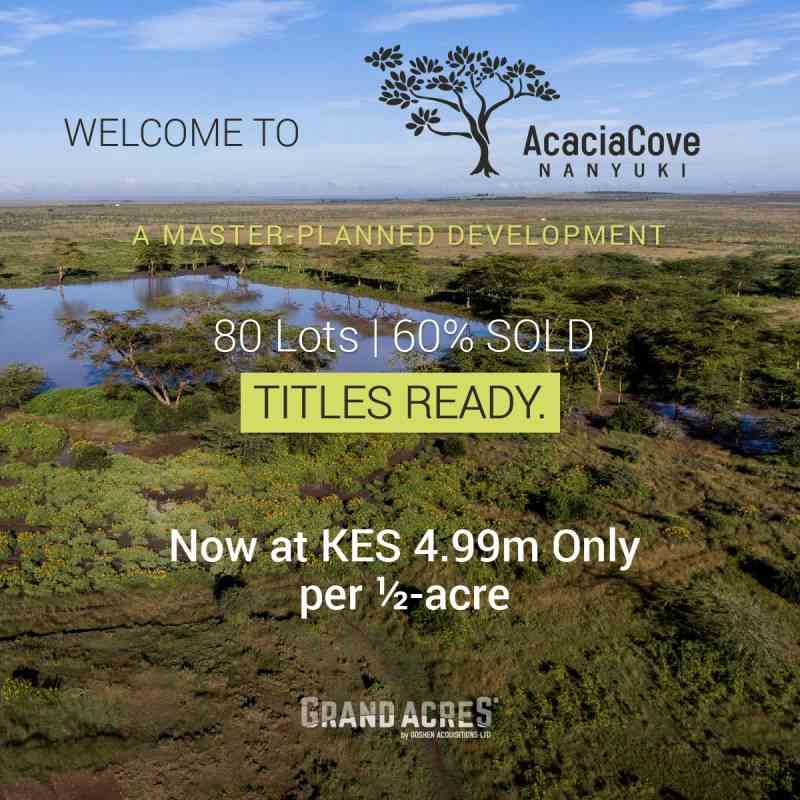
Audio By Vocalize

On the surface, the transaction is simple. When you are ready to own your own piece of this wonderful blue-green marble, you simply find a buyer with a title deed and exchange your hard-earned savings for it. Et voila! You're a landowner. But why do you want to own land in the first place?
In our experience over the last 10 years in this business, we have found that this is where it all begins to go wrong. We as Kenyans have a unique appetite for investing in land. Yet many of us buy without interrogating the most important question - why? As with any investment category, your goal will determine where and how you invest. Defining your investment goal is the first defining step.
We are putting together a free comprehensive guide and checklist that will be useful to follow when looking to make a land purchase. The full guide will be out next week. You may sign up here to receive it directly in your inbox. In the meantime, below are the first three steps to get you started.
Knowing what you want to do with the land is critical to your success in finding the right piece for purchase. Even when making a speculative investment for potential capital gains at some point in the future, you must take time to consider which user/zoning classification would be most beneficial for the future resale value. The user/zoning classifications as recognised by Kenya's governing authorities are residential, commercial, industrial, or agricultural
Budget is a significant component of the why equation. Determining how much money you have available, or are willing to spend/invest, will help to keep you focused. Afterall, there is no point in looking in areas that are more expensive than you are prepared to spend. Along with determining your budget, being clear on your funding source will be necessary, as it may affect your negotiating power, as well as the transaction's timelines. Some typical funding sources include personal cash savings; friends and/or family or like-minded individuals who may want to co-invest with you; Chama or Sacco loans; and loans from commercial banks.
Your purpose and budget automatically determine the third element, location. We have all heard that adage about the most important thing to consider when buying land or property. "Location, location, location!". Knowing your purpose and budget will automatically help you filter through the available options. Your preferred zoning/user and budget will save you valuable time and resources when you start looking around for the land.
For example, if you know that you want or need agricultural land for farming purposes, you would not waste your time searching in densely populated urban areas, which would lack the space that is ideal for profitable farming; probably be too expensive to justify its use for agricultural activity and would also likely be in zones where agricultural user/zoning is prohibited. When you start looking, stay focused on the goal.
Once you have your purpose and budget, it's time to hit the ground. There is no substitute for making time to inspect or view the land that may fit within your already pre-defined goals. The primary reasons for site visits are to:
Working with a licensed agent to find the property that meets your purpose can save you a lot of time. Once you have found something worth a site visit, request for the owner to be present. Meet and develop a rapport with them. Get additional information on the history of the land and the general neighbourhood. Ask the landowner/seller to provide you the following documents to confirm their identity and ownership as well:
If buying from an individual
If buying from a company
Note: Whenever possible, have a quick chat with any neighbours that may be present during your site visit. They often have a wealth of knowledge about the land and/or its owner, that formal due diligence may never avail.
Stay informed. Subscribe to our newsletter
Buying land is a worthwhile investment. At Goshen Acquisitions LTD, we do the leg work to ensure safe passage of value to our buyers and their future generations. Check out our website to see what we have available at goshenacquisitions.com/grandacres. If your investment goals align with any of our products, we'd be delighted to hear from you and to be of service to you.
Wishing you success in your land investment journey.
Solomon Wangwe